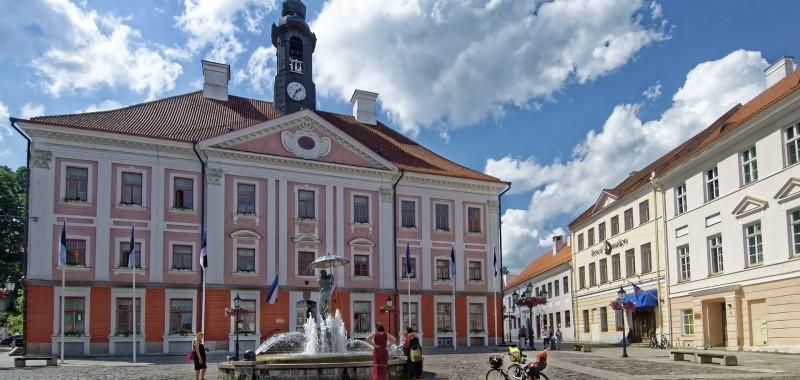
In July 2020, the renovation of 17 apartment buildings of Tartu’s city centre occupying a total area of 32 071 m2 , was completed. All renovated housing formerly characterised as khrushchyovkas (quick-build, low-cost structures with low energy performance) were also decorated with wall paintings. It is the biggest renovation project in Tartu to date.
The Tartu Regional Energy Agency (TREA) was the partner responsible for technical renovation solutions and for advising housing associations. The objective was ambitious and twofold: first, setting high energy and indoor climate standards with the lowest costs possible, and second, pushing technical designers and the construction market to raise the level of ambition regarding the energy performance of buildings. A plan was developed in cooperation with the municipality and other partners to turn the soviet-era low-quality buildings into next-generation smart homes. The goal was to retrofit them to low-energy smart buildings, with consumption from 250 kWh/m2 to 90 kWh/m2 per year.
TREA’s participation in ManagEnergy activities helped design the best financing model possible. Notably, the Expert Mission they hosted focused on the blending of resources, enabling homeowners to access loans with good lending conditions. The SmartEnCity project thus managed to use a combination of different resources: Horizon 2020 funding (ca. 43%), national support scheme for renovation activities (ca. 25%), and additional loans taken by the dwelling owners themselves (ca. 32%).
The planned retrofitting package tackles one of the greatest challenges of Europe’s existing building stock – rapidly deteriorating precast panel apartment buildings quickly produced in response to housing shortages in the sixties and seventies. The market and replicability of the respective solutions is huge, as evidenced by the variety of panel buildings in different Eastern European countries. In Estonia alone, there are ca. 6,000 khrushchyovka-type apartment buildings that were built between 1961- 1990.
Besides significantly increasing the energy efficiency of the pilot buildings, providing a stable interior climate through temperature control and ventilation as well as increasing the aesthetic appeal of the buildings, the project aimed to encourage behavioural changes in the way residents consume energy and adapt to new technologies. Indeed, changes need the cooperation of the users to be implemented. In order to boost participation and interest in the project, several measures were taken including regular information meetings, technical consultations, study trips to similar construction sites and forum discussions. As the retrofit activities are now completed, these awareness-raising actions will now be replaced by a social innovation model focusing on how to motivate residents to use the installed smart devices and save energy.
Agency: Tartu Regional Energy Agency (Estonia)
Project: SmartEnCity
Type of funding: grants + bank loan
Time frame: 2017-2020
€ invested: 14 931 000
Contact: info trea [dot] ee (info[at]trea[dot]ee)
trea [dot] ee (info[at]trea[dot]ee)
Details
- Publication date
- 3 May 2023
